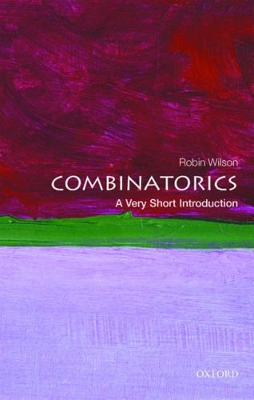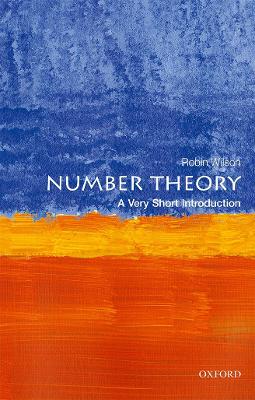Very Short Introductions
2 total works
How many possible sudoku puzzles are there? In the lottery, what is the chance that two winning balls have consecutive numbers? Who invented Pascal's triangle? (it was not Pascal)
Combinatorics, the branch of mathematics concerned with selecting, arranging, and listing or counting collections of objects, works to answer all these questions. Dating back some 3000 years, and initially consisting mainly of the study of permutations and combinations, its scope has broadened to include topics such as graph theory, partitions of numbers, block designs, design of codes, and latin squares. In this Very Short Introduction Robin Wilson gives an overview of the field and
its applications in mathematics and computer theory, considering problems from the shortest routes covering certain stops to the minimum number of colours needed to colour a map with different colours for neighbouring countries.
ABOUT THE SERIES: The Very Short Introductions series from Oxford University Press contains hundreds of titles in almost every subject area. These pocket-sized books are the perfect way to get ahead in a new subject quickly. Our expert authors combine facts, analysis, perspective, new ideas, and enthusiasm to make interesting and challenging topics highly readable.
Combinatorics, the branch of mathematics concerned with selecting, arranging, and listing or counting collections of objects, works to answer all these questions. Dating back some 3000 years, and initially consisting mainly of the study of permutations and combinations, its scope has broadened to include topics such as graph theory, partitions of numbers, block designs, design of codes, and latin squares. In this Very Short Introduction Robin Wilson gives an overview of the field and
its applications in mathematics and computer theory, considering problems from the shortest routes covering certain stops to the minimum number of colours needed to colour a map with different colours for neighbouring countries.
ABOUT THE SERIES: The Very Short Introductions series from Oxford University Press contains hundreds of titles in almost every subject area. These pocket-sized books are the perfect way to get ahead in a new subject quickly. Our expert authors combine facts, analysis, perspective, new ideas, and enthusiasm to make interesting and challenging topics highly readable.
Number theory is the branch of mathematics that is primarily concerned with the counting numbers. Of particular importance are the prime numbers, the 'building blocks' of our number system. The subject is an old one, dating back over two millennia to the ancient Greeks, and for many years has been studied for its intrinsic beauty and elegance, not least because several of its challenges are so easy to state that everyone can understand them, and yet no-one has ever
been able to resolve them.
But number theory has also recently become of great practical importance - in the area of cryptography, where the security of your credit card, and indeed of the nation's defence, depends on a result concerning prime numbers that dates back to the 18th century. Recent years have witnessed other spectacular developments, such as Andrew Wiles's proof of 'Fermat's last theorem' (unproved for over 250 years) and some exciting work on prime numbers. In this Very Short Introduction Robin
Wilson introduces the main areas of classical number theory, both ancient and modern. Drawing on the work of many of the greatest mathematicians of the past, such as Euclid, Fermat, Euler, and Gauss, he situates some of the most interesting and creative problems in the area in their historical context.
ABOUT THE SERIES:
The Very Short Introductions series from Oxford University Press contains hundreds of titles in almost every subject area. These pocket-sized books are the perfect way to get ahead in a new subject quickly. Our expert authors combine facts, analysis, perspective, new ideas, and enthusiasm to make interesting and challenging topics highly readable.
been able to resolve them.
But number theory has also recently become of great practical importance - in the area of cryptography, where the security of your credit card, and indeed of the nation's defence, depends on a result concerning prime numbers that dates back to the 18th century. Recent years have witnessed other spectacular developments, such as Andrew Wiles's proof of 'Fermat's last theorem' (unproved for over 250 years) and some exciting work on prime numbers. In this Very Short Introduction Robin
Wilson introduces the main areas of classical number theory, both ancient and modern. Drawing on the work of many of the greatest mathematicians of the past, such as Euclid, Fermat, Euler, and Gauss, he situates some of the most interesting and creative problems in the area in their historical context.
ABOUT THE SERIES:
The Very Short Introductions series from Oxford University Press contains hundreds of titles in almost every subject area. These pocket-sized books are the perfect way to get ahead in a new subject quickly. Our expert authors combine facts, analysis, perspective, new ideas, and enthusiasm to make interesting and challenging topics highly readable.

